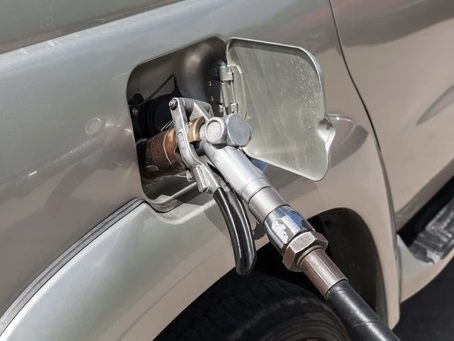Posted on 10/26/2020
In this post, we’ll address four questions for drivers who are less familiar with vehicle maintenance: What kind of service does my cooling system need How often is service necessary? What goes into cooling system maintenance IE what am I actually getting for my money? Can I do the maintenance myself? 1. What kind of maintenance does my cooling system need? Your coolant fill level needs to be kept up, or your vehicle is at risk of overheating. Check the level at regular intervals (say, once a month, when you’re refueling).Only do this when the vehicle is cold, as hot coolant is under pressure and can spray from the radiator, causing burns. Remove the cap from the radiator. Add coolant as needed to bring the level up to the bottom of the filler neck. A big concern with your radiator is that the coolant inside it can expire or potentially gum up if neglected. If coolant can’t circulate as intended, your vehicle will overheat, and this can cause engine components to war ... read more
Posted on 9/7/2020
If your car is overheating, the first thing you need to know is to pull over immediately, the very second it is safe to do so, since overheating can cause permanent damage to the engine. The next thing you need to know is how the cooling system works. A brief overview will help you understand what you can diagnose on your own, and what you will need the help of a professional for. How the cooling system works The combustion of the motor creates heat, obviously. The engine runs optimally at what is known as operating temperature, and the cooling system is supposed to help it stay right at that temp. As the temp climbs past this point, you’ll get coolant bubbling out of the system, steam/smoke, and, eventually, warped or cracked engine components. To keep all this from happening, the cooling system circulates coolant. This coolant heats up when it comes in contact with the heat radiating from the motor. As it flows away, its draws heat with it, to be released into the atmosphere through ... read more
Posted on 8/3/2020

Within the automotive service industry, there are third party organizations that seek to protect the consumer and help service shops to provide a better value to their customers. These networks set standards for transparency and professionalism and provide other benefits. Look for these badges at repair shops, as they demonstrate a service shop’s commitment to quality and customer service. ASA The Automotive Service Association is a prominent nationwide network that sets an industry standard for technicians. The ASA badge means that 1) techs are certified to national industry standards, and 2)that the business itself is in correspondence with the ASA to stay up-to-date on the latest standards and industry information. Napa Auto Care NAC mechanics use Napa parts, which come with a Napa-backed ... read more
Posted on 7/30/2020

Your brake system is made up of multiple parts that all need to work together to bring your vehicle to a safe stop. It is crucial that your vehicle braking system is kept in good condition to guarantee both you, your passengers and other drivers remain safe on the road. Your brake pads and rotors should last you at least 2 years or 24,000 miles, but the numbers can differ depending on driving styles and driving conditions. Luckily for you, your brake system will likely start exhibiting minor symptoms that you can use as an indicator that it may be time to replace your brakes. Here are five common signs it’s time to service your brakes. 1. Squeaking or squealing coming from brakes and when stopping When your brake pads are near the end of their life cycle, they will start making a squeaking noise. This noise is usually caused by a built in wear indicator that is specifically designed to make a ... read more
Posted on 7/14/2020

These comparisons are meant to illustrate the cost effectiveness of each fuel for the consumer, and to weigh it against its environmental impact. The end result will help you decide which of the two most widely available alternative fuels (battery and LPG) is right for you. Diesel and gas are included -- gas, because we need something to compare to, and it is the standard automotive fuel, and diesel, because it is somewhat standard for commercial use, especially when it comes to hauling heavy loads. Energy density These numbers vary only slightly according to different sources. With that in mind, these numbers can serve as good benchmarks. The difference between diesel, gas and propane is small. The energy density of current EV (electric vehicle batteries) is much, much smaller -- about 1/100th that of fuel. Figures are given as megaJoules per kilowatt. LPG: 50.2 Gas: 46.5 Diesel: 45.8 Battery: 0.3 Yes, you read that right… 0.3. But there is much more to the story. Energ ... read more